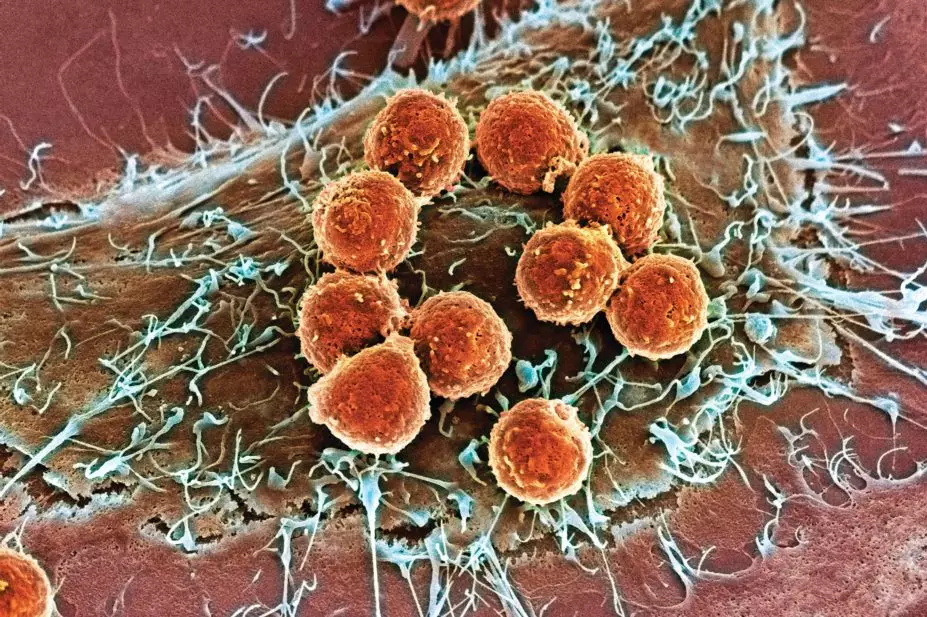
Steve Gschmeissner / Science Photo Library
Immunotherapy is becoming an increasingly important cancer therapy, but only around 30% of patients benefit from it. Previous research indicated that the level of cytotoxic T-cell infiltration into the tumour might predict treatment response.
In a recent paper, researchers studied cytotoxic T cells taken from treatment-naive patients with lung cancer.
They found that tumours that were densely infiltrated with cytotoxic T cells had a distinct pattern of gene expression associated with a type of tissue-resident memory cell and this was also associated with enhanced cytotoxicity. Furthermore, an increased number of tissue-resident memory cells in tumour tissue was independently associated with lung cancer survival, regardless of the level of T-cell infiltration.
Reporting in Nature Immunology
[1]
(online, 19 June 2017), the researchers say that profiling tumour-infiltrating T cells at baseline could be used to select immunotherapy for lung cancer patients.
References
[1] Ganesan A-P, Clarke J, Wood O et al. Tissue-resident memory features are linked to the magnitude of cytotoxic T cell responses in human lung cancer. Nat Immunol 2017; doi: 10.1038/ni.3775


